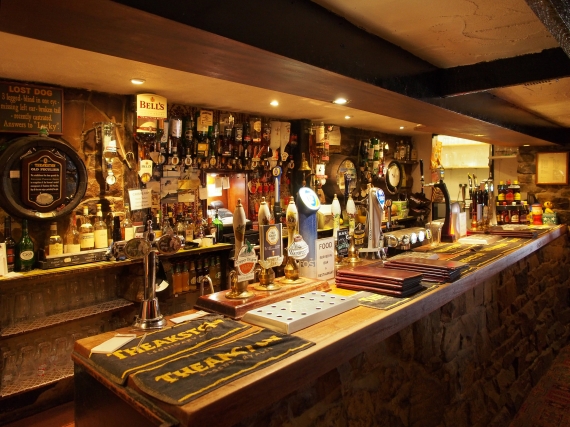
A new report from the Drinks Industry Group of Ireland (DIGI) has shown a sharp decline in the number of pubs doing business throughout the country since 2005.
'The Irish Pub: Stopping the Decline report,' based on the group’s analysis of Revenue license data and including an economic and social analysis by Dublin City University (DCU) Associate Professor Emeritus and economist Anthony Foley, shows a 21.2% decline in the number of pubs in Ireland from 2005 to 2021.
All 26 counties experienced declines in pub numbers through the 16-year period. The largest decrease was seen in Laois with 30.6% less pubs since 2005. This was the only county with a decrease of 30% or more. The lowest decrease was in Meath with 1.4% less. Meath was followed by Dublin, reporting a decrease of only 4.3%. All the remaining 23 counties had decreases greater than 10%.
Three counties, Carlow (10.4%), Kildare (13.6%), and Wicklow (10.1%) showed decreases between 10% and 14.9% while Cavan (17.2%), Kerry (15.3), Kilkenny (18.1%), Monaghan (19.8%), and Wexford (17.2%) were in the 15% to 19.9% decrease bracket. All the remaining counties had decreases of more than 20%.
Six counties, Clare (24.7%), Galway (20.6%), Louth (20.3%), Sligo (24%), Waterford (23.5%), and Westmeath (24.4%) were in the 20% to 24.9% decrease band, while nine counties Cork (28.5%), Donegal (26.3%), Leitrim (26.4%), Limerick (29.1%), Longford (25.7%), Mayo (25.1%), Offaly (29.9%), Roscommon (28.3%), and Tipperary (26.3%) saw decreases between 25% and 29.9%.
According to an economic and social analysis of the numbers, economist Anthony Foley notes that public houses contribute to the culture and vibrancy of villages, small towns, and rural areas in many ways. They contribute to tourism and provide an extensive network of physical facilities and services needed by tourists and locals.
Foley cites concerns for the impact of the decline on rural Ireland, when taken in the context of wider challenges facing areas outside Dublin. When you consider decreases in the number of post offices, full bank branches, Garda stations, local retail enterprises and a wide range of other services and facilities, there are concerns about the commercial capability of small towns and villages with large levels of commercial building vacancy.
According to the analysis, Foley suggests there is likely to be a negative social impact arising from the trend and extent of closures, especially in rural and remote areas in Ireland. Foley cites a number of reasons for the decline including non-replacement of pub operators on retirement or death, low levels of business volume and economic sustainability, regulatory changes such as tighter drink driving laws and enforcement allied with weak or non-existent public transport and population change and distribution, among others.
Commenting on the report, recently appointed Chair of DIGI and Communications and Corporate Affairs Director at Irish Distillers, Kathryn D’Arcy said, "The Irish pub has been in a steady decline for years, and these stark figures once again highlight the need to secure the sustainable future of our pubs. Central to this is introducing policy measures which can make both an immediate difference and a long-term impact in terms of delivering sustainable policy to support these businesses. DIGI is seeking a reduction in Ireland’s high excise tax rate which would deliver on this."
Source: www.businessworld.ie

















